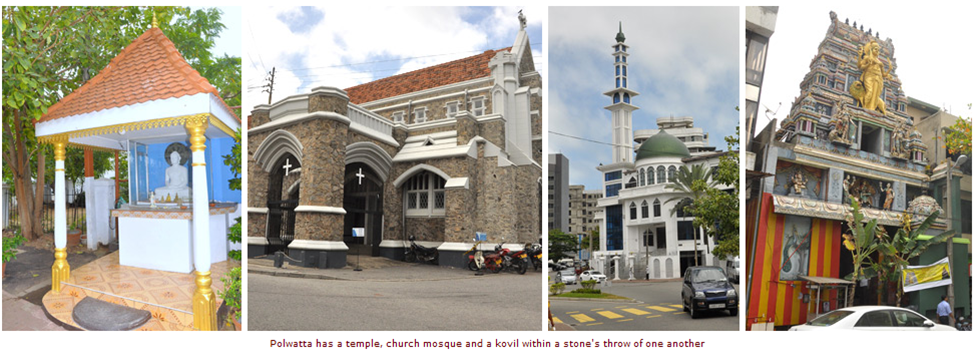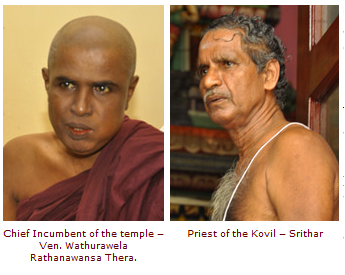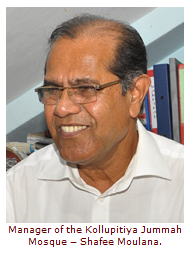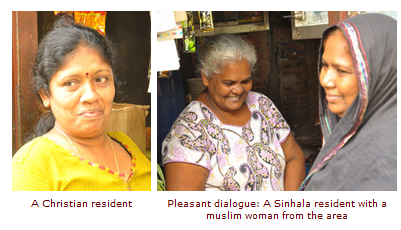'Live and let live'

Sunday, 06th July 2014
By Husna Inayathullah
 Peace is an occurrence of harmony characterised by lack of violence, conflict behaviour and the freedom from fear of violence. Commonly understood as the absence of hostility, peace also suggests sincere attempts at reconciliation, the existence of healthy or newly healed interpersonal or international relationships, prosperity in matters of social or economic welfare, the establishment of equality, that serves the true interests of all.
Peace is an occurrence of harmony characterised by lack of violence, conflict behaviour and the freedom from fear of violence. Commonly understood as the absence of hostility, peace also suggests sincere attempts at reconciliation, the existence of healthy or newly healed interpersonal or international relationships, prosperity in matters of social or economic welfare, the establishment of equality, that serves the true interests of all.
Religious beliefs often seek to identify and address the basic problems of human life, including conflicts among and within persons and societies.

Many Christians call Jesus the "Prince of Peace", and see him as a 'Messiah', the "Christ", who manifested as the Son of God on Earth to establish God's Kingdom of Peace, wherein persons, societies, and all of Creation are to be healed of evil.
Buddhists believe that peace can be attained once all suffering ends.
They regard all suffering as stemming from craving, aversion or delusions. To eliminate such suffering and achieve personal peace, followers in the path of the Buddha adhere to a set of teachings called the Four Noble Truths - a central tenet in Buddhist philosophy.
Islam means submission. The title "Muslim" etymologically directly related to salam and means a person who submits to Allah in salam. The submission to Allah "The God", is based on humility. An attitude of humility within one's own self cannot be accomplished without total rejection of violence, and a personal attitude and alignment toward peace.
Hinduism is also a religion of peace.
It is the oldest world religion. In some of its writings ahimsa has been considered the highest duty from the beginning of time. Jainism also grew out of Hinduism. Jainists believe that people should strive to become detached from the distractions of worldly existence and that the practice of ahimsa is an essential step on the way to personal salvation.
The Sunday Observer spoke to religious leaders belonging to different ethnic groups living in Polwatta, Kollupitiya, Colombo 3 and obtained the essence of unity and harmony between the different ethnic groups living together in peace and harmony.
Polwatta has a kovil, mosque, church and a temple in the same vicinity.

The people here live in unity. This region was really unique because their was perfect harmony between them. The people loved and respected one another.
Walking into the llam thopu sakthi amman kovil and speaking to the priest was a wonderful experience. Srithar said, "All the four major ethnic groups live in this area. We live peacefully and happily.
We share and care for each other. If peace and harmony between communities is not strengthened, it could have a negative impact on the economy and hinder the country's forward march."
"Sri Lanka is a Buddhist country but all ethnic groups live together. This area is the best example for harmony between the multi-ethnic groups.
Every year we allow all the religious groups to conduct meetings and to hold their celebrations inside our mosque. The commemoration of war heroes takes place each year at our mosque.
At times, all of us get together and discuss our common problems and find solutions. We conduct meetings for our betterment and development too. President Mahinda Rajapaksa is of imnense assistance said Shafee Moulana, the manager of the Kollupitiya Jummah mosque.
Ven. Wathurawela Rathanawansa thera, the chief incumbent of the Sri Dharmakeerthi Royal Temple, Polwatta said, "It is 32 years since I am living here. Even though many problems arise in the country, for example like the recent riot in Beruwela, the different ethnic groups in Polwatta live together in peace. We are happy that we do not have misunderstandings or clashes between us.

Wherever, whatever happens, we the people of Polwatta will always be united. If there is a problem in our area, all the religious leaders get together and discuss the problem and find a useful solution."
He further said, " I wish that the whole country lived like us.
At the same time I also wish that the Polwatta region should be forever united and live in unity. I will never allow outsiders to come and create conflicts.
Even during problem times, we went house -to - house and advised the people to live in unity.
During Vesak, the activities connected to dansals were done by the Muslims, Tamils and Christians so this shows our unity."
Nelson Nicolas, a Christian resident in Polwatte said, " Each year we participate in all the festivals of the different ethnic groups. It is real fun. We live in harmony together."
"We live in unity and happiness. Even during this Ramazan season, we share our food with each other.They are very happy to taste our special conjee which we make for Ramazan," said Fathima Sharafdeen a resident of the area.
All major religions in this region therefore stressed the importance of 'live and let live' in peace and harmony.
Polwatta in Kollupitiya bears ample testimony to this fact.




